Gaza, MINA – Palestinian officials and economic experts believe that success of reconciliation and the restoration of national unity between the West Bank and Gaza Strip will reflect positively on Gaza’s economy and will accelerate reconstruction following three devastating wars launched by Israel in 2008, 2012 and 2014.
Minister of Public Works and Housing Mufid Hasayneh told WAFA that the success of the national reconciliation will help the reconstruction process because it will enhance donor confidence in the national authority and encourage them to continue to provide support and fulfill all their obligations.
He added that the reconciliation will give great confidence to the international community to support the Gaza Strip more seriously, pointing out that many European countries have confirmed that they will support the Gaza Strip in all aspects of life once the National Reconciliation Government begins its actual work in the Gaza Strip.
Hasayneh explained that the government has implemented projects worth $650 million in the housing sector alone, including the establishment of 8000 new housing units, repairing 120000 units that were damaged and the rehabilitation of 22000 housing units that were heavily damage .
Also Read: WHO Evacuates Nearly 8,000 Patients from Gaza
He pointed out that 81% of what was destroyed during the last war has been completed, but that $150 million are still needed to complete the reconstruction process in the housing sector.
Hasayneh said Kuwait was one of the most cooperative countries in the field of reconstruction, pointing out that the government had signed $200 million agreement with it of which $75 million were allocated to the housing sector for the construction of 2270 housing units.
He pointed out that $35 million of the Kuwaiti grant were allocated for infrastructure work, benefiting all the municipalities of the Gaza Strip, $8 million for housing, $3 million to relief societies and institutions, $4 million to the maternity hospital, $1.5 million to the agricultural and livestock sectors, and the rest for the benefit the industrial and commercial sectors.
Hasayneh said that it was agreed with Saudi Arabia to provide $80 million, most of which went to housing to build 2000 units.
Also Read: Satellite Images Show Over 1,500 Buildings Destroyed in Gaza Since Ceasefire Began
He added that Qatar has provided $50 million that went toward the construction of 1000 housing units. It was also agreed with the Turks to provide $16 million to build 320 housing units that will be delivered next month to the poor and some of those whose homes were destroyed.
The Housing Minister said it was also agreed with the Americans to provide $30 million, out of which $10 million were allocated to remove the rubble from the destruction and the remaining $20 million to build housing units ranging in area from 60 to 80 square meters.
The European Union has also allocated $80 million for partially damaged buildings, which has been repaired. The Germans have agreed to provide $60 million, while Italy has provided €16 million for the construction of seven new towers in the Nada quarter and the repair of 17 partially destroyed towers in the amount of $2.5 million dollars, and $4.85 to rebuild the towers in the Italian Complex. He pointed out that al-Thafer tower building was built at a value of $4 million and will be delivered next week to residents.
He added that 1000 housing units destroyed in the wars of 2008 and 2012 have been reconstructed from the aid and that the Hamad Town Towers in Khan Yunis, south of the Gaza Strip, with 2500 housing units were built using an older Qatari fund and that they were handed over to their beneficiaries.
The minister pointed out that five towers comprising of 100 apartments in the area of Juhr al-Deek were built in support from the Islamic Development Bank.
For his part, Ali Hayeh, president of the Businessmen Association, said that the success of reconciliation will achieve political and economic gains, most notably lifting the siege and encouraging donors and the international community to re-inject funds in important projects in the Gaza Strip, in addition to lifting the blockade impost on international organizations and their return to the Strip.
He noted the great importance of the reopening of the crossings after reconciliation, particularly with regard to export and import and the entry of heavy machinery and prohibited materials.
Economic expert Maher Tabbaa said that the reaching national reconciliation will accelerate and facilitate communication with the donors to bring in funds for reconstruction, and end the mechanism for the entry of materials and construction equipment to the Gaza Strip.
Also Read: Israeli Forces Kill Palestinian in Jabalia Refugee Camp, Gaza
Serious repercussions in the Gaza Strip.
He said: The delay in the reconstruction process, in addition to the continuation of the blockade has led to serious repercussions in the Gaza Strip. Many international organizations have warned of their impact on all economic, social, health and environmental aspects.
The World Bank said in a previous report that the absence of peace and reconciliation at the political level have led to the creation of an unsustainable economic situation in the West Bank and Gaza Strip.
According to the report, the war on the Gaza Strip in 2014 caused a humanitarian crisis and damage to the economy worth $1.7 billion although growth rate in the Gaza Strip has reached 7.3% in 2016 due to construction activities. Gaza’s economy is not expected to return to pre-war level at least until 2018.
Also Read: Three Killed, Several Injured in Ongoing Israeli Attacks Across Gaza
According to a report released by the United Nations Conference on Trade and Development (UNCTAD), only 50% of Gaza reconstruction pledges at the 2014 Cairo conference had actually reached the government and UN agencies.
The Cairo conference, held in October 2014 following the latest Israeli war on the Gaza Strip, saw pledges of $3.5 billion in grants for the reconstruction of Gaza. (T/RS5/RS1)
Mi’raj Islamic News Agency (MINA)





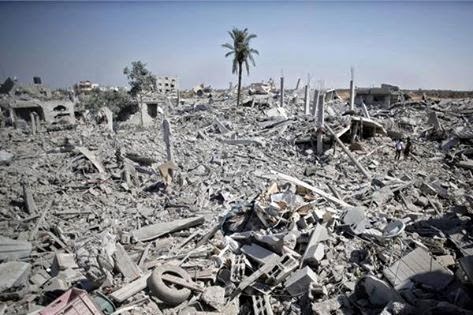

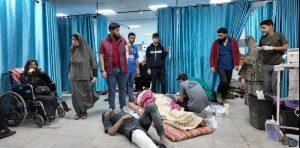
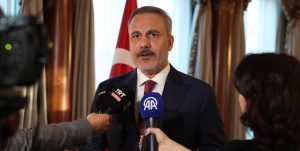
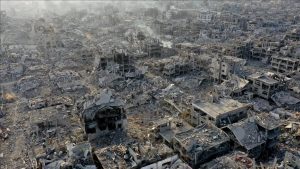
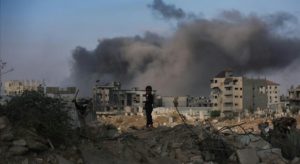


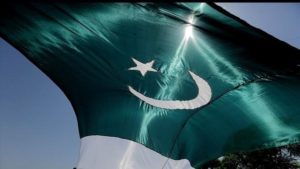
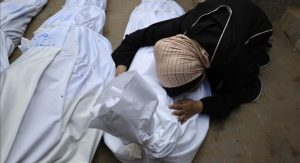

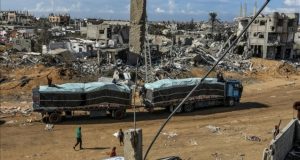
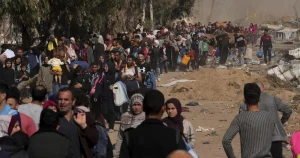
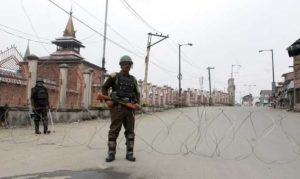







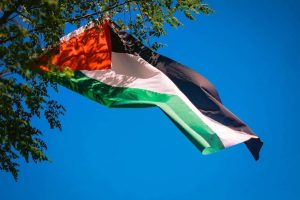
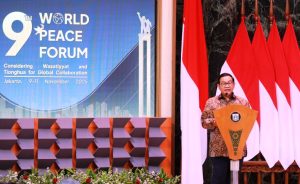





 Mina Indonesia
Mina Indonesia Mina Arabic
Mina Arabic